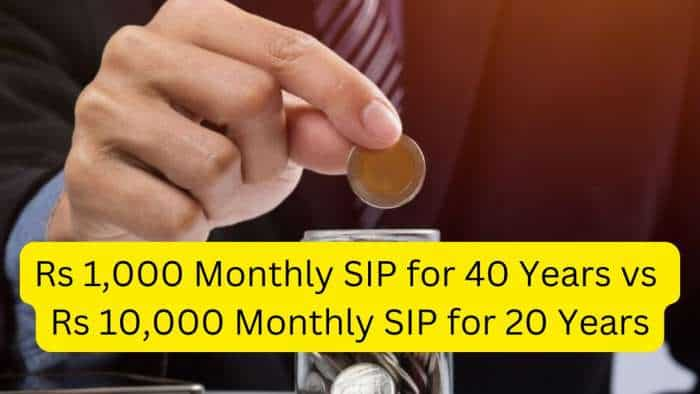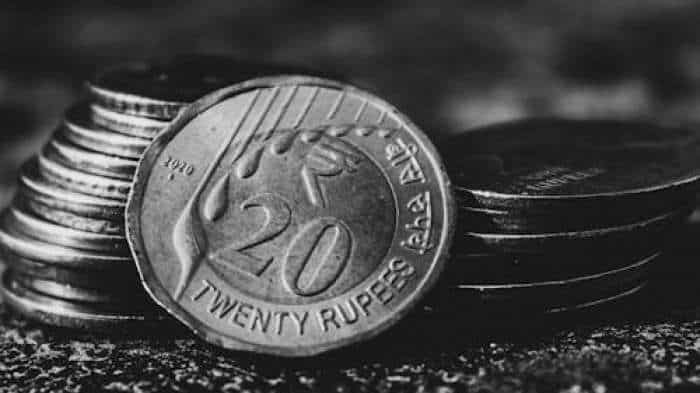Zee Business Exclusive: Option traders may get back their 'Do Not Exercise' option soon
Market regulator Securities and Exchange Board of India (SEBI) is considering reintroduction of Do Not Exercise (DNE) option for option traders.

Market regulator Securities and Exchange Board of India (SEBI) is considering reintroduction of Do Not Exercise (DNE) option for option traders. SEBI’s Risk Management and Review Committee (RMRC) headed by Prof JR Verma met on last Thursday and discussed about the issue with the stakeholders.
As per the sources privy to this development, “RMRC considered the issue and favoured the reintroduction of the DNE. To review the regulation a subgroup has been formed with the mandate to suggest DNE option after studying the international markets best practices. The sub-group will suggest if DNE be allowed up to 3 strike price or more”. The source further added that “Once sub- group submits its report, RMRC will finalise the regulations and will be communicated to exchanges and clearing corporations.” The revised regulations may be out within 1-2 months.
See Zee Business Live TV Streaming Below:
Brokers and market participants have been demanding to the regulator to re-introduce DNE option in Close to the Money (CTM) Option contracts. After removal of Do Not Exercise, it became obligatory for all the options holders to compulsorily take or give delivery of their options even if there are slightly in the money. Thus, the holder of the put option, which is slightly in the money would be forced to give the delivery of the underlying share, while the holder of the call option, which is slightly in the money would be forced to cough up the entire purchase consideration and compulsorily take delivery.
DNE was removed for two conceptual reasons, one was to give a level playing field for option writers who could be left with unplanned overnight exposure when the option holder choose to not exercise the option, and secondly the fact that the DNE was introduced to resolve the anomaly of excessive STT in the era where all the derivatives contracts were cash settled. Operationally, the extra processing due to DNE used to delay the Clearing Corporations process leading to complains from market participants.
NSE Clearing Limited had issued a circular on September 29, 2021, alerting its members that Do Not Exercise option will not be available from October 14, 2021, but many traders were not updated or aware of the new circular and assumed that DNE is available to them as was earlier. The new rules mandated that from November expiry, if spot price of a share closes below strike price, then trader holding put option of stock will have to either sell his position before expiry or arrange shares from auction.
In December expiry contract, many traders who could not sell their position in Hindalco Put, suffered huge losses, due to non-availability of DNE. Traders, earlier had the maximum risk of losing only their premium money, were forced to buy the shares in the auction and settle the trade. The concerns post Hindalco episode was discussed in the Risk Management and Review Committee, stake holders pointed to the huge risk for brokers and system in case traders default is high.
In layman language Option is a contract which gives trader the right, but not the obligation to buy or sell a share at a particular date on a specified price. In Call option, the trader gets the right but not the obligation to buy stock at a specified date and price. Buyer of a Call Option profits, when the price of stock goes up and loses when stock price goes down. Similarly, the Put Option gives the right but not the obligation to sell a particular stock at a specified date and price. The pre-decided price at which the buyer of the Put option can sell the underlying security is termed as strike price. To buy the Option, there is a price to be paid which is called as premium. Premium is the income received by the seller of an option contract.
Get Latest Business News, Stock Market Updates and Videos; Check your tax outgo through Income Tax Calculator and save money through our Personal Finance coverage. Check Business Breaking News Live on Zee Business Twitter and Facebook. Subscribe on YouTube.
RECOMMENDED STORIES

Top 7 ETFs With Highest Returns in 1 Year: No. 1 ETF has turned Rs 8,78,787 investment into Rs 13,95,091; know how others have fared

Rs 1,000 Monthly SIP for 40 Years vs Rs 10,000 Monthly SIP for 20 Years: Which can give you higher corpus in long term? Calculations inside

Power of Compounding: How can you create Rs 5 crore, 6 crore, 7 crore corpuses if your monthly salary is Rs 20,000?

Power of Rs 3,000 SIP: In how many years, Rs 3,000 monthly investment can generate corpuses of Rs 2 crore and Rs 3 crore? Know here

after bumper 2024 rs 2 lakh crore worth ipos expected in 2025 primary market nsdl avanse financial ecom express sebi approval
07:25 AM IST









 BSE, NSE closed today for Christmas; trading to resume on Thursday
BSE, NSE closed today for Christmas; trading to resume on Thursday Santa Pick by Anil Singhvi for long term: Market wizard bullish on this smallcap IT services stock
Santa Pick by Anil Singhvi for long term: Market wizard bullish on this smallcap IT services stock GIFT Nifty futures hint at muted start; markets to trade cautiously
GIFT Nifty futures hint at muted start; markets to trade cautiously Global cues, FIIs key factors to watch, markets may react to assembly polls outcome: Analysts
Global cues, FIIs key factors to watch, markets may react to assembly polls outcome: Analysts  Indian markets will remain under pressure amid global rate cuts: Report
Indian markets will remain under pressure amid global rate cuts: Report